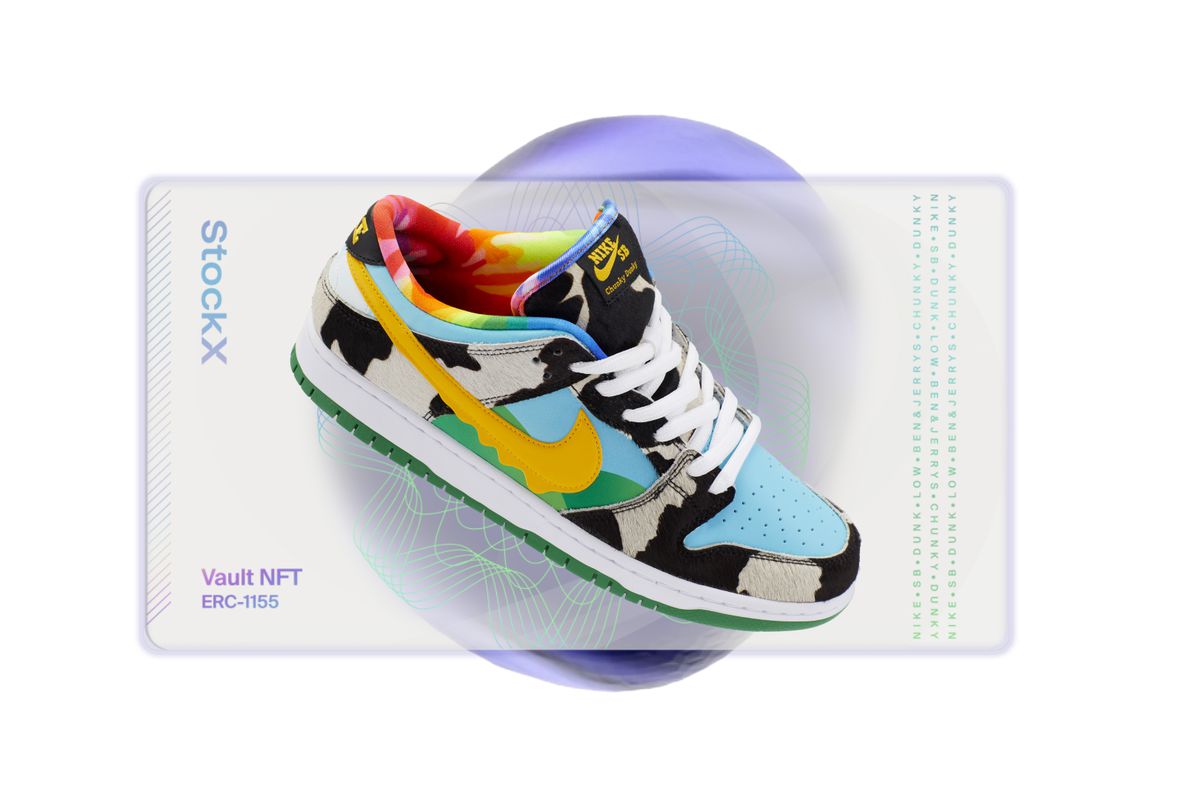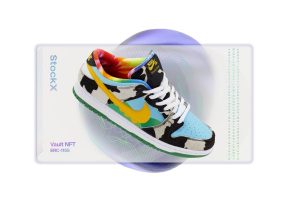Join Our Telegram channel to stay up to date on breaking news coverage
The globally renowned sportswear giant Nike has instituted a suit in the Southern District Court of New York against an online resale marketplace, StockX, for trademark infringement, trademark dilution, and other charges under the trademark and anti-dilution laws of the United States, and under statutory and common law unfair competition.
The entire controversy had started with the launch of StockX’s Vault NFTs bearing Nike’s trademarks on them.
Launch of StockX’s Vault NFTs & Nike Suing StockX
StockX operates an online resale platform for different brands of sneakers, electronics, apparel, and other goods. A collection of NFTs was launched by StockX’s New York-based Editorial Director on January 18, 2022. This was known as StockX Vault NFTs, which the users would purchase directly from StockX via the StockX Website and StockX App.
StockX claims that the Vault NFTs are linked to a specific physical product that is held in StockX’s custody before the NFT owner “redeems” the NFT by exchanging it with the associated physical product or any other benefit.
According to the StockX, the Vault NFTs are minted on the Ethereum blockchain, and they offer “owners the opportunity to invest in current culture, with cross-platform liquidity on the horizon.”
The Nike-branded Vault NFTs are allegedly sold on the StockX platform for an amount higher than the price of the physical Nike shoe.
For example, The 2022 Nike Dunk Low, which is Retro White Black, is being sold on the official website of Nike for an amount of $100, but, the average sale price for the 2021 version of the same good is coming at around $282 on the StockX’s marketplace.
Moreover, the cost of the Vault NFT, which is purportedly associated with this pair of shoes, is coming to be around $809, as of February 2, 2022.
Why did Nike Sue StockX?
The online resale platform, StockX, has made its entry into the NFT market by allegedly infringing Nike’s famous trademarks. Nike contends that StockX has been minting NFTs bearing Nike’s trademarks, and has been capitalizing on its goodwill by marketing those NFTs.
These NFTs are sold to the customers at exorbitant prices under the guise of “investible digital assets” that are supposedly authorized by Nike, when, factually, they are not. Nike has claimed not to authorize or approve StockX’s Nike-branded Vault NFTs.
These unauthorized products are expected to create confusion in the minds of consumers, thereby leading them to believe that there has been an association between these NFTs and Nike’s products.
Customers are already questioning whether Nike authorized StockX to sell its infringing NFT products, and they are wondering how StockX has been granted “the license to sell NFTs with [N]ike branding.”
Though StockX has been using Nike’s trademarks related to the Vault NFTs extensively, there is no control exercised by the sportswear giant over the Vault NFTs’ quality.
The company has stated that it does not own any control over the number of Vault NFTs bearing Nike’s well-known trademarks released in the market, where these NFTs are getting released, and how they have to be traded, or redeemed, or how much the Vault NFTs are sold for. StockX’s Vault NFTs are not made by Nike.
Nike and StockX have not collaborated, nor it has granted StockX a license to use its trademarks in connection with the Vault NFTs, Nike did not make or examine the Vault NFTs or authorize the confusing and misleading Vault NFT Terms, and Nike has not authorized StockX to make, promote, advertise, market, or sell NFTs.
Nike’s concerns lie with the fact that entire NFTs have stirred confusion among the consumers regarding whether the company is linked with StockX’s Vault NFTs. This is evident from the questions that are posted on social media platforms like Twitter and Reddit, “Are these NFTs endorsed/approved by Nike/Adidas, etc?”
For now, Katy Cockrel, StockX vice president of communications, has commented “the lawsuit filed against StockX lacks merit and is based on a mischaracterization of the service StockX offers through our NFT experience…Our Vault NFTs depict and represent proof of ownership of physical goods stored in our vault that customers can trade on our platform. We undoubtedly have the right to provide our customers with this new and innovative approach to trading current culture products on StockX, and plan to vigorously defend our position.”
What lies ahead?
Nike has asserted that StockX has harmed its business reputation and goodwill, created consumer confusion about the source of origin or relationship between Nike’s products and StockX’s Vault NFTs, and has otherwise competed unfairly by illegally trading on and using its asserted marks without its permission.
Nike has sued StockX and sought the relief of preventing StockX from manufacturing, minting transporting, promoting, advertising, publicizing, distributing, offering for sale, or selling any NFT products under Nike’s marks.
In its complaint, Nike has asked for the award of three times the amount of compensatory damages and increased profits under 15 U.S.C. § 1117 due to the wilful nature of StockX’s wrongful acts. It has further requested the court to consider it as an exceptional case, and allow it to recover its costs of suit and its attorneys’ fees according to 15 U.S.C. § 1117.
Whatever be the outcome of this suit, there is no denying the fact that NFTs, sadly, have become a virtual arena for the infringers to cash on the reputation of leading brands by infringing their trademarks for the purpose of making ill-gotten revenues. It is wise to invest in NFTs bought only from the best NFT marketplaces so that their authenticity could be ensured.
Join Our Telegram channel to stay up to date on breaking news coverage


